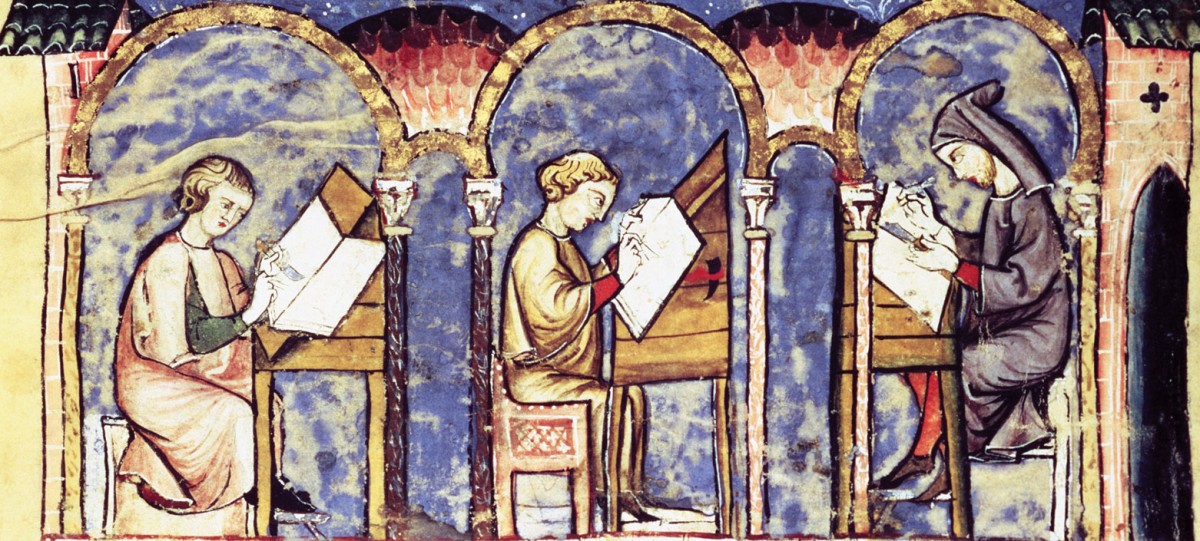“On his mother’s side he was more than mortal. He was the son of one of the Muses and a Thracian prince. His mother gave him the gift of music and Thrace where he grew up fostered it. The Thracians were the most musical of the peoples of Greece. But Orpheus had no rival there or anywhere except the gods alone. There was no limit to his power when he played and sang. No one and nothing could resist him.
“In the deep still woods upon the Thracian mountains
Orpheus with his singing lyre led the trees,
Led the wild beasts of the wilderness.
“Everything animate and inanimate followed him. He moved the rocks on the hillside and turned the courses of the rivers….
“When he first met and how he wooed the maiden he loved, Eurydice, we are not told, but it is clear that no maiden he wanted could have resisted the power of his song. They were married, but their joy was brief. Directly after the wedding, as the bride walked in a meadow with her bridesmaids, a viper stung her and she died. Orpheus’ grief was overwhelming. He could not endure it. He determined to go down to the world of death and try to bring Eurydice back. He said to himself,
“With my song
I will charm Demeter’s daughter,
I will charm the Lord of the Dead,
Moving their hearts with my melody.
I will bear her away from Hades.
“He dared more than any other man ever dared for his love. He took the fearsome journey to the underworld. There he struck his lyre, and at the sound all that vast multitude were charmed to stillness….
“O Gods who rule the dark and silent world,
To you all born of a woman needs must come.
All lovely things at last go down to you.
You are the debtor who is always paid.
A little while we tarry up on earth.
Then we are yours forever and forever.
But I seek one who came to you too soon.
The bud was plucked before the flower bloomed.
I tried to bear my loss. I could not bear it.
Love was too strong a god, O King, you know
If that old tale men tell is true, how once
The flowers saw the rape of Proserpine,
Then weave again for sweet Eurydice
Life’s pattern that was taken from the loom
Too quick. See, I ask a little thing,
Only that you will lend, not give, her to me.
She shall be yours when her years’ span is full.
“No one under the spell of his voice could refuse him anything. He drew iron tears down Pluto’s cheek,
and made Hell grant what Love did seek.
“They summoned Eurydice and gave her to him, but upon one condition: that he would not look back at her as she followed him, until they had reached the upper world. So the two passed through the great doors of Hades to the path which would take them out of the darkness, climbing up and up. He knew that she must be just behind him, but he longed unutterably to give one glance to make sure. But now they were almost there, the blackness was turning gray; now he had stepped out joyfully into the daylight. Then he turned to her. It was too soon; she was still in the cavern. He saw her in the dim light, and he held out his arms to clasp her; but on the instant she was gone. She had slipped back into the darkness. All he heard was one faint word, “Farewell.”
“Desperately he tried to rush after her and follow her down, but he was not allowed. The gods would not consent to his entering the world of the dead a second time, while he was still alive. He was forced to return to the earth alone, in utter desolation. Then he forsook the company of men. He wandered through the wild solitudes of Thrace, comfortless except for his lyre, playing, always playing, and the rocks and the rivers and the trees heard him gladly, his only companions. But at last a band of Maenads [women] came upon him….They slew the gentle musician, tearing him limb from limb, borne along past the river’s mouth on to the Lesbian shore; nor had it suffered any change from the sea when the Muses found it and buried it in the sanctuary of the island. His limbs they gathered and placed in a tomb at the foot of Mount Olympus, and there to this day the nightingales sing more sweetly than anywhere else.”
